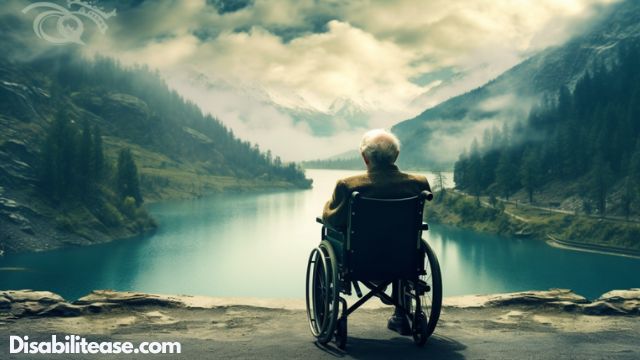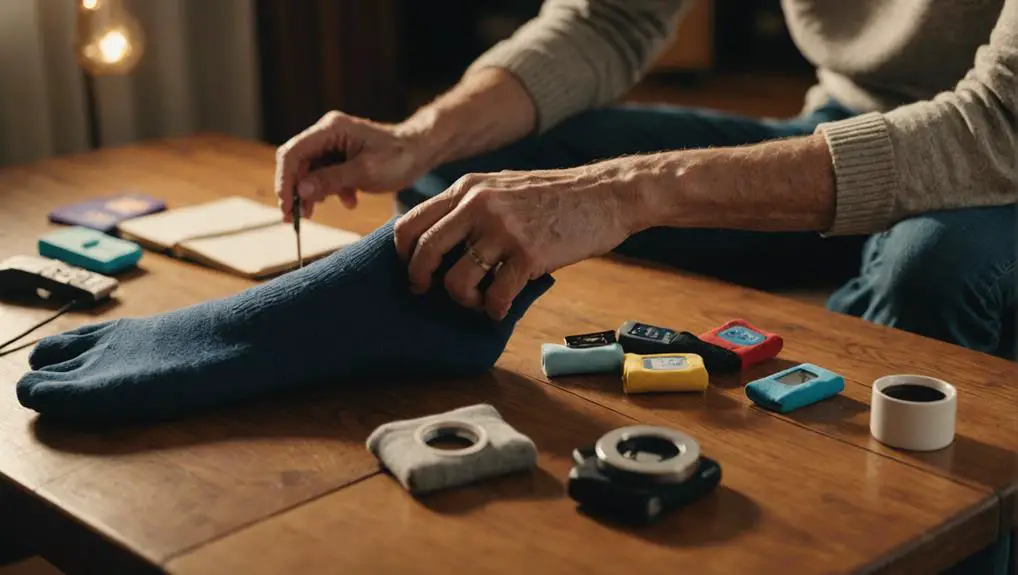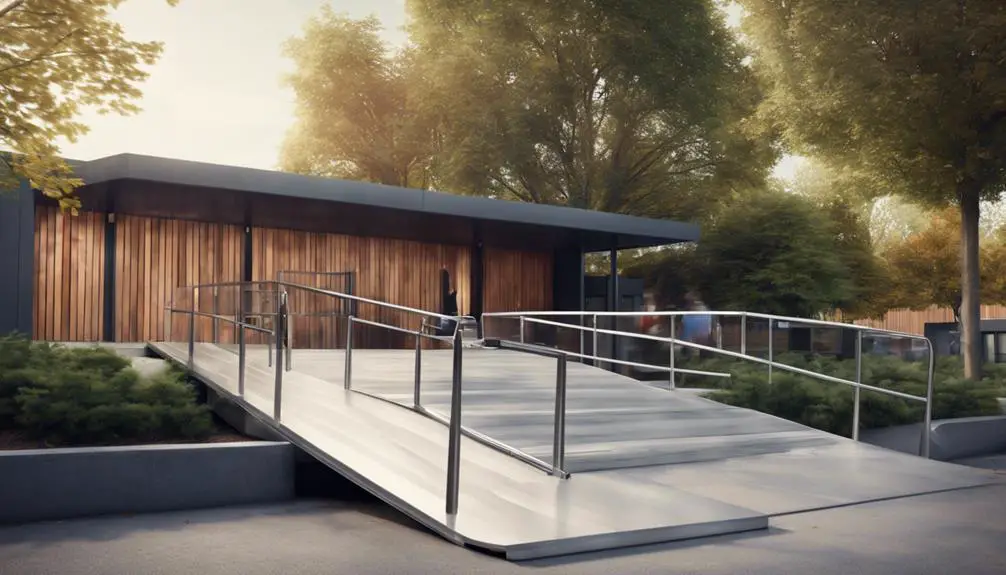Traveling can be a great way to improve your mental health, especially if you’re disabled or elderly. Even if you can’t travel far, there are still ways to get out and explore the world.

Whether it’s a week-long trip abroad or just a short drive to the beach, getting out of your comfort zone is good for the soul.
In this article, we’ll look at how traveling can benefit the disabled and elderly, provide some tips on planning trips safely and securely, and discuss why it’s such an important part of maintaining good mental health.
So let’s get started!
Table of Contents
Benefits of Travelling for the Disabled and Elderly
Traveling can be an amazing way for disabled and elderly people to break free from the everyday routines of life, allowing them to explore new places, cultures, and experiences! This gives them the chance to become more independent because they’re able to take control of their own plans and decisions.
The sense of freedom that comes with traveling can give a much-needed boost in confidence for those who may feel restricted by their disability or age. Additionally, it provides an opportunity for emotional growth as they come across different people and ideas that challenge their beliefs or help broaden their understanding of the world.
The physical benefits of travel are also worth noting. Moving around helps keep muscles active and encourages regular exercise while exposing them to different climates offers potential health benefits such as increased vitamin D levels from being outdoors in sunny countries.
All these combine to make traveling a great choice for disabled and elderly people looking to improve their physical well-being. With its ability to lift spirits, broaden perspectives, increase independence, and provide physical benefits, it’s no surprise why many disabled and elderly people prefer travelling as a form of recreation or holiday retreat.
Traveling allows them opportunities that would otherwise be unavailable at home — creating unique memories that will last a lifetime!
Tips for Planning a Trip

You want to plan a trip for yourself or a loved one who’s disabled or elderly, but you may not know where to start.
The key points to keep in mind are:
- Research accessible destinations.
- Plan ahead and consider your needs.
- Take advantage of technology.
This will help make sure you have the best possible experience when travelling.
So, let’s get started!
Research Accessible Destinations
Discovering accessible destinations can help empower disabled and elderly people, opening up new possibilities for mental health improvement. To make sure the travel experience is as smooth as possible, it’s important to research destinations that provide visiting guides and accessible transport. This will enable disabled and elderly people to get around easily and without feeling overwhelmed or anxious.
Additionally, checking online reviews of hotels, restaurants, museums, and other attractions can ensure that they are truly accessible before committing to a trip. By doing so, you’ll guarantee a safe and enjoyable journey with minimal stress or hassle.
Planning ahead in this way can open doors to places previously thought off-limits due to accessibility concerns, leading to a more meaningful vacation experience.
Plan Ahead and Consider Your Needs
Planning ahead and considering one’s needs is essential for ensuring an accessible travel experience.
It’s important to research medical support and accessibility options available for any destination you’re looking to visit. This will ensure that the trip isn’t overly strenuous or disruptive to your mental health.
Additionally, it would be beneficial to consider the physical requirements of activities that may be planned during the trip, such as hiking or taking part in excursions.
If certain activities can’t be completed due to disability or age-related concerns, it’s wise to look into alternative activities that can still provide a fun and enjoyable experience.
In addition, having a comprehensive understanding of any potential limitations for disabled or elderly travelers can help make sure they get the most out of their journey with minimal disruption to their mental wellbeing.
Take Advantage of Technology
Take advantage of the latest technology to make your travel journey easier and more enjoyable. With online resources, you can easily research accessible transportation options and plan for potential accommodations ahead of time.
You don’t have to worry about navigating unfamiliar routes or dealing with unreliable public transit schedules when you can access information quickly online. Plus, you can take advantage of special services like wheelchair-accessible transport that are available through certain providers.
Taking the time to research these options beforehand will help ensure a smoother travel experience and reduce stress levels while on the go. With today’s technology, disabled and elderly people can enjoy their travels with greater ease than ever before.
Safety and Security Considerations

When travelling, safety and security must be a primary consideration for disabled and elderly people to ensure their mental health benefits.
For disabled and elderly people, spending time away from home can provide them with an opportunity to experience something new, relax, and spend quality time with friends or family.
It is important to plan ahead when travelling with the elderly or disabled in order to reduce potential risks that could arise during the journey.
| Financial Costs | Medical Assistance |
|---|---|
| Accommodation costs | Accessible medical care |
| Travel expenses | Emergency medications if needed |
| Activities costs | Caregiver support services if needed |
Financial costs and medical assistance are just some of the considerations when planning a trip with those who are disabled or elderly. Additional considerations should also include accessibility needs as well as food allergies or special dietary requirements.
It may be beneficial to create an itinerary prior to departure that includes contact information for medical facilities in case of emergency. Additionally, it is essential to have proper travel insurance coverage in place before leaving on any journey.
By taking these steps prior to departing on a trip, it will help ensure everyone involved is able to enjoy the experience safely while potentially reaping mental health benefits at the same time.
Making smart decisions regarding safety and security can help make any travel experience more enjoyable for all involved – regardless of age or ability level!
Conclusion
You’ve seen the benefits of traveling for disabled and elderly people, as well as tips for planning a trip.
Safety and security are essential considerations when traveling with disabilities or age-related issues. With some extra planning and preparation, you can make sure your trip is enjoyable and memorable.
Traveling can provide an opportunity to learn about different cultures, explore new places, meet new people, and break up the monotony of daily life.
It can also be a great way to improve mental health by giving us time away from our usual routines and stresses. So don’t let disabilities or age-related issues stop you – get out there and explore!

Hi, my name is Eddie, I am a professional trainer specializing in the elderly population and I’m also a website designer. I love training in the gym, going to the beach, traveling, and having good food.
I combined my love for sport and website designing to make “DisabilitEase” whose purpose is to help elderly and disabled people live a more full and active life, have more fun, and enjoy their unique journey despite any disability.


